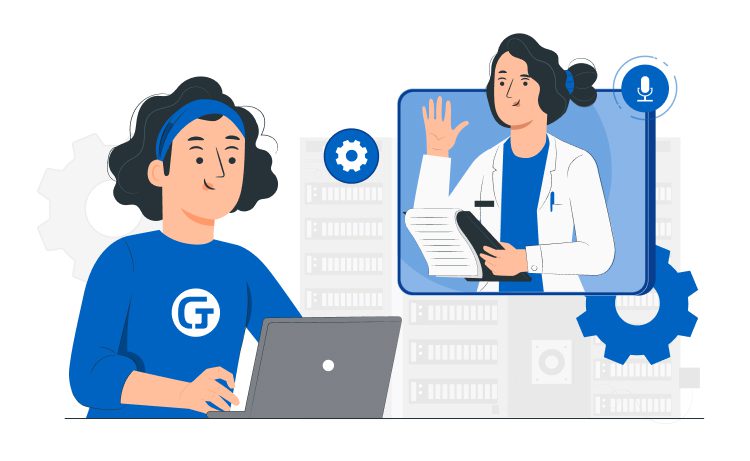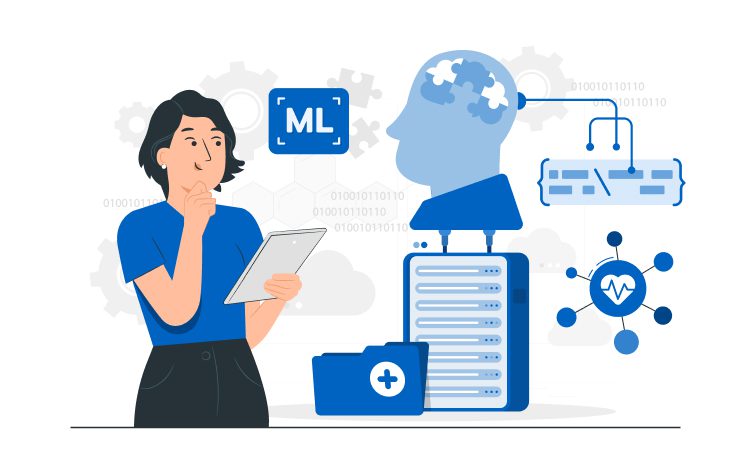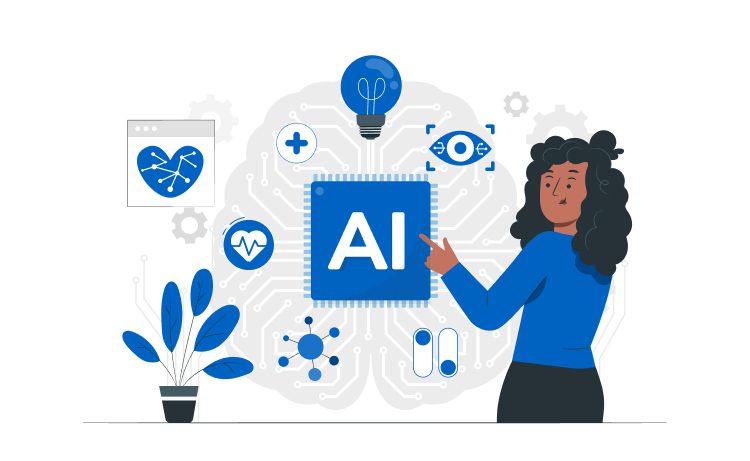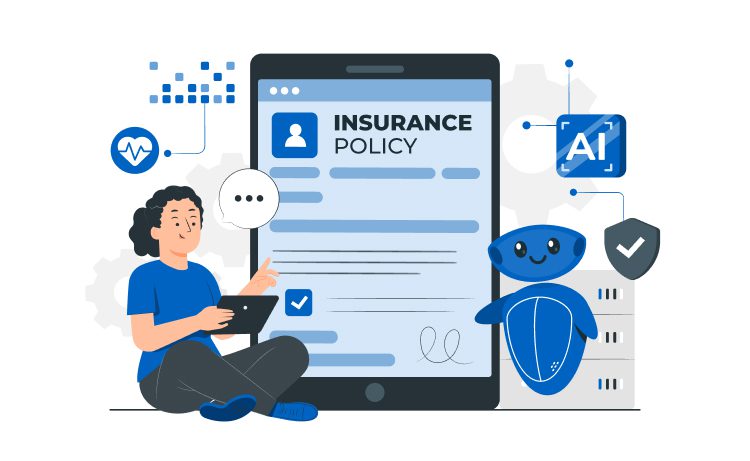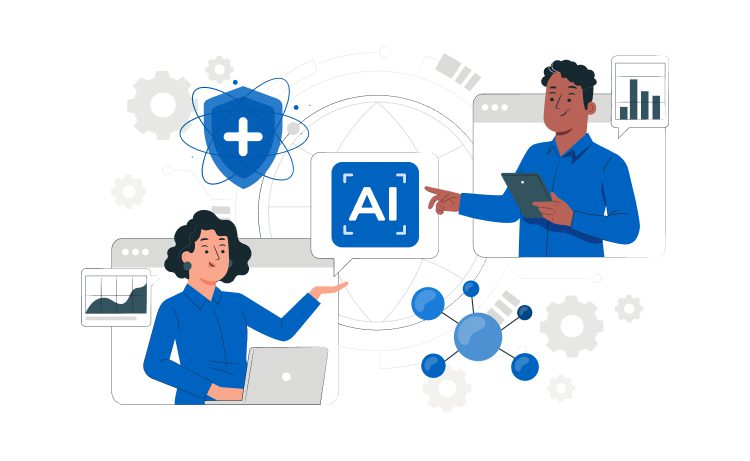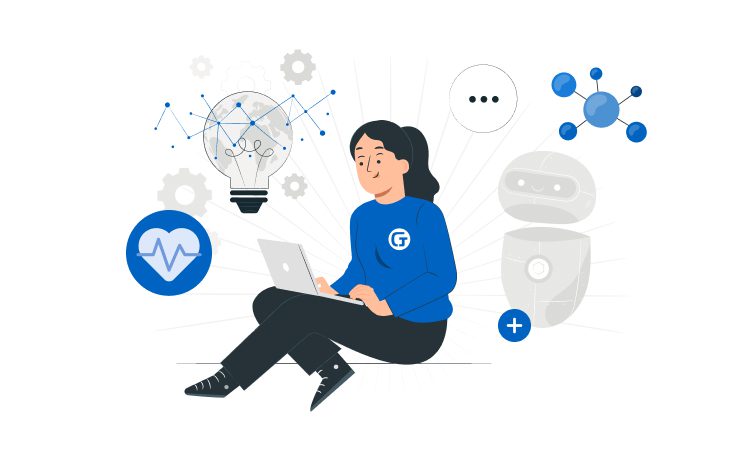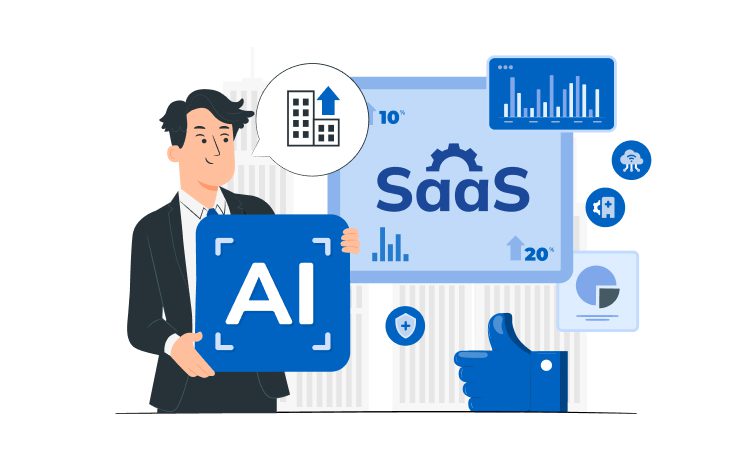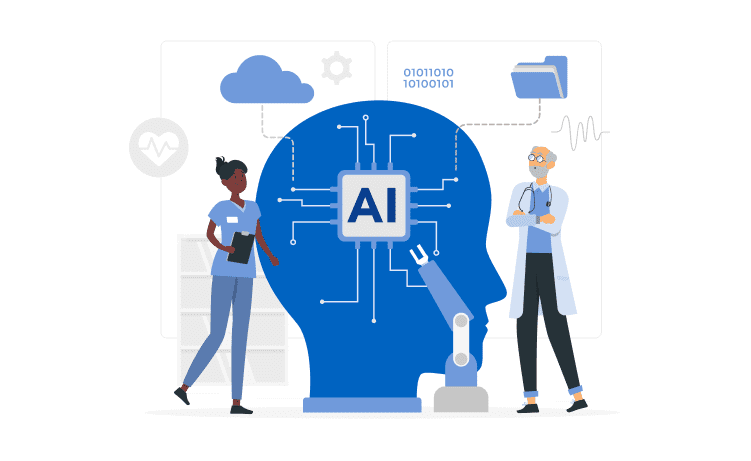
Top 5 AI Use Cases in Healthcare [2025 Update]



When discussing ground-breaking technologies that healthcare providers are about to try their hands at, artificial intelligence is no longer on the list. Once an emerging trend, it is now a proven driver of progress, delivering tangible improvements across treatment planning and decision-making. AI helps healthcare professionals improve diagnostic accuracy, reduce costs, and enhance patient outcomes by analyzing patient data and predicting treatment responses.
Take, for example, Mayo Clinic’s use of AI algorithms that could have detected heart arrhythmias using electrocardiogram data. Their AI model successfully identified asymptomatic patients at risk of sudden cardiac arrest, enabling proactive care and improving patient outcomes.
AI models can process and interpret vast healthcare data—from electronic health records and medical images to lab results and genetic profiles. Medical professionals can use these insights to identify patterns often missed by human review, leading to earlier disease diagnosis, more precise treatment plans, and more personalized patient care.
Content
Healthcare professionals are expected to do more with less – tackle more administrative tasks and see more patients while making fewer medical errors and spending less time. Generative AI becomes a lifesaver as it can summarize complex medical histories, manage EHRs, and even generate synthetic data to support medical research.
In clinical trials, generative AI accelerates the drug discovery process. It identifies and flags potential drug interactions faster than traditional methods, reducing development time and healthcare costs. As it comes with in-built natural language processing, medical specialists can reduce manual tasks by turning unstructured data into practical findings.
You can come across a bunch of AI use cases in the healthcare industry, and their number only keeps growing. Healthcare organizations invest in AI-driven solutions to manage overwhelming data volumes and reduce administrative strain, among other reasons. After all, one average ‘active’ patient, engaged in regular care, generates nearly 80 megabytes of data each year from imaging and EHRs alone. While it can take ages for healthcare providers to process and synthesize this information, it may take a few seconds for gen AI tools to get things done. Thus, medical staff can prioritize urgent cases, generate clinical summaries, and reduce manual chart reviews.
At UC San Diego Health, AI tools powered by natural language processing rapidly summarize complex patient histories, allowing clinicians to access key information without combing through pages of records. This reduction in administrative workload, paired with context-aware recommendations, helps specialists focus on medical services, not paperwork. This increases provider job satisfaction and strengthens patient engagement across healthcare settings.
Key benefits of generative AI use in healthcare:
As use cases of generative AI in healthcare continue to grow, early adopters will be better positioned to strengthen patient safety. These organizations will also be more prepared to respond to ongoing changes in the healthcare industry.
Medical exams produce a flood of data—MRI scans, cardiograms, CT findings, and ultrasound results—all critical to accurate diagnosis and treatment. But for many healthcare professionals, analyzing patient data across multiple formats remains time-consuming and error-prone.
This is where AI in healthcare is making a measurable impact. AI-powered systems now automate image analysis and documentation, helping you eliminate manual data entry and focus on what matters most: direct patient care.
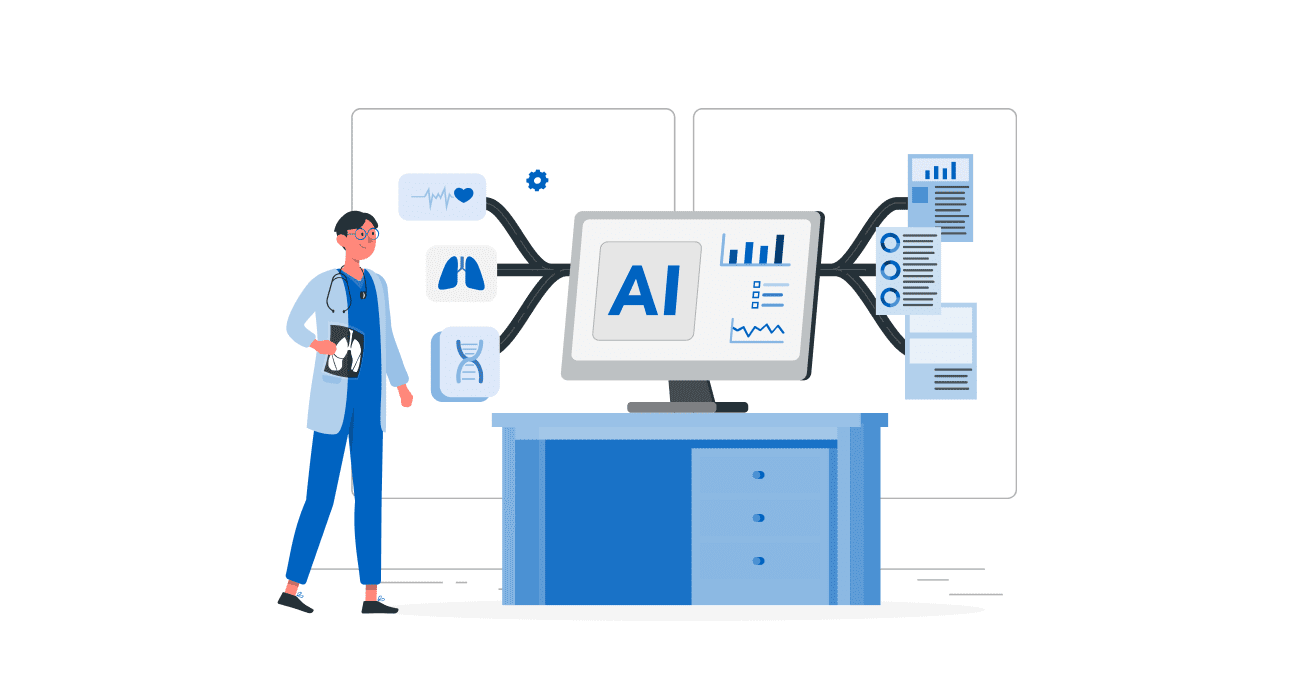
Let’s look at Aidoc, a healthcare AI company focused on radiology solutions that have been adopted in over 1,000 hospitals worldwide. Its tools help clinicians act faster by identifying urgent cases early and supporting better patient outcomes. In some deployments, diagnosis times have been reduced by up to 50%, easing pressure on overworked radiology teams and addressing staffing shortages.
Generative AI in healthcare enables you to go far beyond automation. Using advanced models, it can interpret clinical notes, synthesize historical and real-time patient records, and assist in producing more accurate medical diagnoses. These AI algorithms can also cross-reference findings with past scans, electronic health records, and relevant clinical trials, helping you build more personalized treatment plans.
Considering how much data-heavy modern healthcare systems are, adopting AI-powered tools is no longer optional for organizations striving to deliver higher-quality and faster medical services. It’s a strategic move toward better care, improved workflows, and diagnostic accuracy.
Medical imaging is what helps get medical diagnoses right in the modern healthcare sector. However, going through MRI scans, CT images, and ultrasound results takes time and attention. Even the most skilled specialists can miss things. Now, AI in healthcare is changing reality by analyzing patient data with unmatched speed and precision. AI systems can identify patterns and detect abnormalities—sometimes even before symptoms appear— helping doctors act sooner and ultimately improving patient outcomes.

Around 7% of hospital patients in general medical care – roughly 1 in every 14 – may experience a harmful diagnostic error. Advanced AI models can reduce this risk by cross-referencing imaging results with historical and current data, clinical notes, and findings from clinical trials.
Israel’s MedyMatch Technology uses self-learning software to enhance stroke detection. By comparing a patient’s brain scan to thousands of others in its database, the system helps doctors deliver faster, more accurate treatment decisions.
Main ways AI is advancing medical imaging in healthcare systems:
AI tools like IBM Watson help healthcare professionals diagnose rare diseases by scanning vast medical research databases and patient records. Meanwhile, genetic testing services such as 23andMe give patients a clearer view of their potential health risks, so that they can take preventive action.
As adoption spreads across healthcare practices and healthcare settings, AI-driven diagnostics are redefining the standards for health outcomes in the global healthcare market.
The global shortage of professionals in the healthcare sector isn’t new, but it’s getting worse after COVID-19. The World Health Organization believes that by 2030, the world will need an additional 11 million qualified healthcare providers to meet essential care needs. The gap is widening quickly with an aging population, rising chronic disease rates, and growing patient volumes.
When endless forms get in the way of care, AI in healthcare steps in to give you time back. By combining generative AI models with trusted medical knowledge bases, you can automate time-consuming tasks and electronic health records and answer routine questions.

You can instantly structure and search vast medical datasets, from patients’ medical records to family history. Personalized treatment plans won’t be wishful thinking ever again. AI algorithms can also assist in administrative workflows like claims processing and scheduling, freeing up resources for direct care.
Adopting generative AI in healthcare now means better patient outcomes and a stronger foundation for sustainable, high-quality healthcare services.
AI-powered telemedicine has become one of the most transformative shifts in the healthcare niche. Enabling remote consultations opens the door to medical services for patients in underserved areas, particularly in remote settlements and sparsely populated villages where timely care can be life‑saving.

Through AI‑driven telemedicine apps, general practitioners can provide real‑time guidance for non‑emergency conditions, expanding access to care for far more patients. Leading companies are actively working on AI tools to capture and interpret symptoms, helping form preliminary diagnoses. Some platforms integrate speech processing, allowing patients to describe symptoms conversationally—just as they would in a clinic.
Virtual nurses take this further. Already used in U.S. clinics, they can assess health concerns, suggest treatments, schedule in‑person visits, and educate patients on proper medication use.
Telemedicine now delivers faster, more accurate remote diagnoses by combining AI algorithms, machine learning, and patient data. It also decreases healthcare costs and improves patient care, making healthcare more accessible and affordable worldwide.
Learn more about AI consulting services.
Startups working in drug discovery and vaccine research have become vital players in the healthcare sector, especially during the COVID‑19 pandemic and the emergence of new virus strains. Traditionally, developing new drugs is a slow, big-ticket process, often taking over a decade and billions of dollars. But with AI in healthcare, you can now accelerate these timelines dramatically while reducing costs.
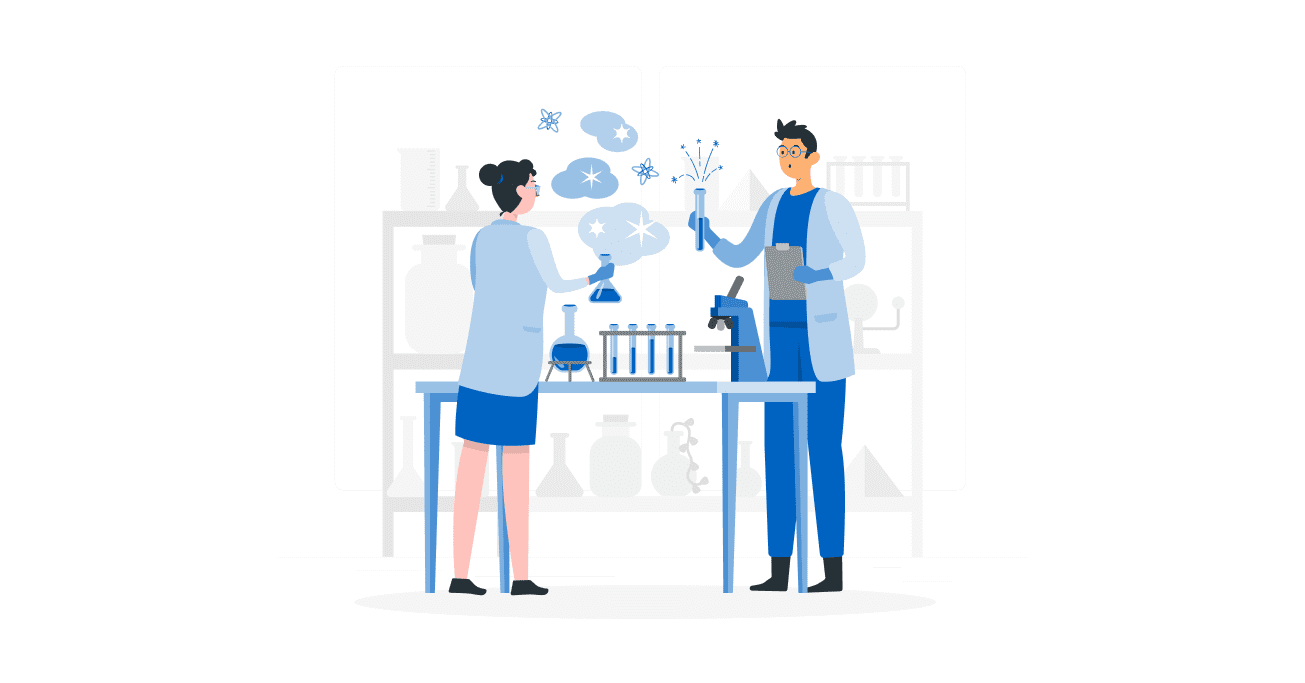
Researchers can process vast amounts of medical research and medical data using generative AI models and advanced AI algorithms, uncovering valuable insights in weeks instead of years. Neural networks can identify new applications for existing drugs, making development far more cost‑effective than starting from scratch.
In 2020, BenevolentAI used AI‑powered analysis to identify baricitinib—originally an arthritis drug—as a potential COVID‑19 treatment in just 48 hours. This achievement condensed a process that would normally take months.
AI also enables pharmaceutical companies to predict drug effectiveness earlier in the pipeline, helping avoid costly late‑stage failures. By leveraging synthetic data and real‑world patient records, you can test hypotheses safely, protect patient safety, and focus resources where they matter most.
Incorporating generative AI in healthcare doesn’t just streamline research; it shortens the path from lab to bedside, giving patients faster access to life‑saving treatments and improving patient outcomes worldwide.
AI-powered products could do a lot for healthcare, but their adoption is still moving slowly. High development costs, public skepticism, and limited funding in many countries continue to stand in the way.
To overcome the obstacles, you need to focus on creating AI solutions that are simpler to use, more affordable to implement, and capable of delivering clear, tangible value to both healthcare providers and patients. Affordable, well‑designed systems can make advanced healthcare services more accessible, helping patients see how AI improves their care and outcomes.
Pairing this with high‑quality marketing and positive patient feedback will help build trust and adoption. When people understand how AI can speed up drug discovery and improve the overall patient experience, they are far more likely to embrace these innovations as an essential part of modern healthcare.
Andrii DavydovFull-stack developer, Glorium Technologies

AI helps healthcare providers improve diagnostic accuracy, give more people access to doctors, and handle medical data more efficiently. With the right healthcare software development approach, you can bring these capabilities into your practice to enhance patient care and run your operations more smoothly.
Modern AI models can analyze enormous amounts of patient data like medical history, lab results, imaging scans. This enables earlier disease detection, more accurate diagnoses, and personalized treatment plans. For example, Google Health’s AI for breast cancer screening outperformed human radiologists in detecting cancer from mammograms, reducing false positives and false negatives.
AI-powered telemedicine and virtual care platforms help patients connect with healthcare professionals from anywhere, making care more accessible for remote areas. This improves the patient experience and eases the strain on hospitals and clinics.
By automating routine tasks like updating electronic health records or summarizing complex notes, doctors can spend less time on paperwork and more time on urgent cases. That means safer care for patients and fewer mistakes from manual data entry.
Glorium Technologies partnered with Astarte Medical, a U.S.-based nutrition company, to develop a forecasting and tracking app shaped around infants’ treatment plans. The project centered on building a proprietary dataset that brought together feeding protocols, microbiome profiles, and clinical information.
Our team integrated this dataset into the web application, enabling it to deliver actionable recommendations through an AI-powered decision tree. When caregivers log infant parameters into the app, it automatically measures protocol compliance and tracks nutrition progress. Drawing on AI algorithms and insights from previous cases, the decision tree then suggests personalized diet plans made for each infant’s needs.
This innovative solution now allows Astarte Medical to provide data-driven, precision treatment plans that improve nutrition and promote better overall infant health. The collaboration between Glorium Technologies and Astarte Medical was where medical expertise, intelligent technology, and actionable insights met to enhance patient care.
At Glorium Technologies, we help you design and deploy AI-powered solutions that fit seamlessly into your healthcare systems. From generative AI models that summarize patient histories to computer vision tools that detect anomalies in medical imaging, our goal is to assist healthcare professionals in delivering faster, safer, and more accurate care.
We work end-to-end—from concept to deployment—ensuring your AI application meets the highest performance, security, and usability standards. Whether you’re looking to improve diagnostics, streamline managing patient records, or speed up drug discovery, we’ll help you turn AI’s potential into measurable results.
Schedule a call to discuss building an AI-powered healthcare solution that works for you and your patients.
AI can break down tricky medical concepts into plain language with the help of natural language processing, using visuals or interactive tools to make them clearer. It can adapt explanations to a patient’s age, education level, and medical history—helping them understand better, feel less anxious, and make more informed decisions about their treatment and care.
AI can skyrocket drug discovery by rapidly analyzing vast medical datasets. It can also identify promising drug candidates and predict their effectiveness before costly clinical studies. AI models—those using advanced algorithms—can uncover patterns in medical research and patient data. This approach shortens development timelines, reduces costs, and increases the likelihood of successful treatments reaching patients faster.
Artificial intelligence protects patient confidentiality by using data anonymization, encryption, and secure access controls to keep personal information private. It can also work with realistic but fake synthetic data to train models without exposing patient records. By following strict privacy standards, AI tools allow healthcare providers to use data effectively while keeping sensitive details safe.

